Introduction to AI Market Research Tools
Understanding market dynamics and consumer behaviour is of increasing importance in today's fast-paced business environment, and traditional market research methods cannot keep up with rapid changes to consumer preferences or market trends.
Artificial Intelligence market research tools offer businesses an innovative solution for gathering and analyzing data more quickly. AI market research tools, developed by leading AI design agencies, leverage the power of artificial intelligence to automate data collection, analysis, and interpretation, transforming vast amounts of data into actionable insights. AI market research tools not only enhance market research processes but also increase the accuracy of insights gained quickly to enable business decision-making with confidence.

These AI tools offer marketers a competitive advantage by providing deeper, data-driven insights. Tools like SurveyMonkey Genius, powered by OpenAI’s technology, optimize survey processes to collect consumer insights more efficiently than ever before. Platforms such as SEMRush Market Explorer and AI Persona Builder offer advanced capabilities in market trend analysis and customer persona creation to address marketing professionals' diverse needs.
As we explore the capabilities and benefits, including the latest AI UX research trends of AI market research tools, it's clear that their adoption is crucial for any business looking to succeed in the digital age. The next sections will outline how AI has revolutionized market research processes; showcase top AI tools available now; as well as offer guidance on selecting suitable tools for your specific business requirements.
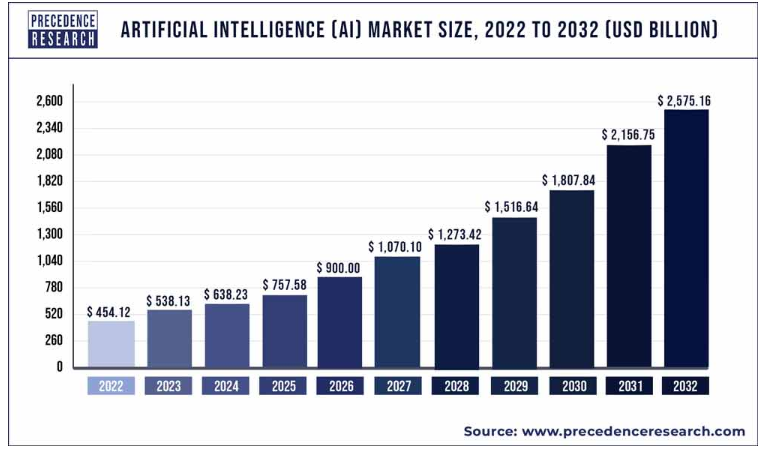
The Evolution of Market Research: The AI Revolution
The journey of market research from traditional methodologies to the forefront of artificial intelligence (AI) encapsulates a remarkable evolution in gathering and analyzing consumer insights. This shift signifies a paradigm change, marking the dawn of a new era where data becomes the linchpin of strategic business decisions, powered by AI's unparalleled capabilities.
Traditional Methods to AI Integration
Initially, market research was synonymous with surveys, focus groups, and field observations—methods that, while effective, were labour-intensive and constrained by the limitations of human capacity and bias. The digital revolution offered some respite, introducing online surveys and social media analytics into the mix, but the true transformation was heralded by the advent of AI.
Today, AI market research tools are redefining the landscape, utilizing algorithms and machine learning to sift through vast datasets, deciphering patterns and preferences with a precision and speed that was once beyond reach.
Transformative Impact of AI on Market Research
AI's influence on market research is multifaceted and profound:
Accelerated Data Processing: AI tools analyze data at a pace no human team could match, enabling real-time insights and rapid response strategies.
Forward-Looking Insights: Through predictive analytics, AI not only interprets existing data but forecasts future trends, providing a competitive edge in market anticipation.
Deeper Consumer Understanding: By employing sentiment analysis, AI digs beneath surface-level data to unearth intricate consumer emotions and opinions, offering a richer, more nuanced understanding of the market.
Operational Efficiency: Automating routine data analysis tasks, AI frees researchers to concentrate on strategic aspects, enhancing productivity and innovation.
Enhanced Personalization: AI facilitates highly targeted marketing by identifying specific consumer preferences, leading to improved engagement and loyalty through personalized content and offers.
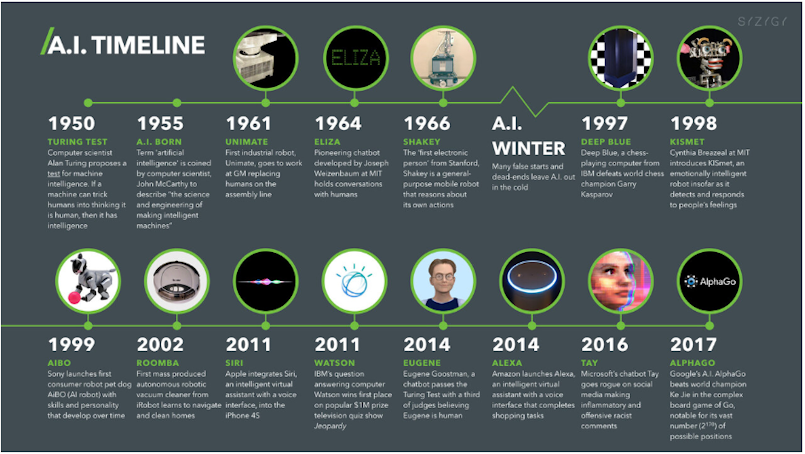
Understanding AI Market Research Tools
AI market research tools are sophisticated software solutions that leverage algorithms, machine learning, and natural language processing technologies to perform tasks traditionally carried out by human researchers - like data collection, sentiment analysis, trend forecasting and consumer behaviour prediction. By processing large amounts of information at incredible speeds these tools deliver actionable insights more efficiently than traditional methods.
7 Key Features and Functionalities of AI Tools
Automated Data Collection: These tools enable the collection of data from various sources such as social media platforms, websites and online forums automatically - greatly decreasing the time and effort needed for data gathering.
Sentiment Analysis: By analyzing customer feedback, social media posts, and online reviews AI tools can gauge public sentiment towards brands, products, or services.
Predictive Analytics: AI's predictive capabilities allow it to forecast future market trends, consumer behaviours, and potential growth opportunities; helping businesses make informed strategic decisions with confidence.
Value Proposition: AI market research tools offer businesses tremendous value because of their rapid ability to convert raw data into strategic insights quickly. For businesses, this means:
Reduced Research Time: By shortening market research process times businesses can react swiftly to market changes or consumer trends more rapidly.
Increased Accuracy: AI is capable of uncovering patterns or trends which would otherwise remain hidden to humans - yielding greater insights that could otherwise go unseen or remain hidden by humans alone - leading to overall better decision-making processes.
Cost Efficiency: Automating data collection and analysis processes reduces the need for large market research teams, saving companies considerable resources.
Benefits of Using AI for Market Research
AI's integration into market research methodologies has heralded a new era in data analysis and consumer insight gathering. By employing AI, businesses can unlock many benefits that streamline operations and enhance the accuracy and depth of market insights. Let's take a look at some of these benefits.
Accelerated Data Analysis: One of the primary advantages of AI market research tools is their ability to process vast datasets swiftly. Unlike traditional methods that can be time-consuming and prone to human error, AI tools analyze data with remarkable speed, enabling businesses to react to market changes with agility. This rapid analysis facilitates quicker decision-making processes, a critical factor in maintaining competitive advantage in fast-paced industries.
Enhanced Consumer Insights: AI tools excel in dissecting complex consumer data to provide detailed insights into customer behaviour and preferences. Through techniques like sentiment analysis and natural language processing, AI can uncover nuanced consumer sentiments and trends that might be overlooked by traditional analysis. This depth of insight allows businesses to tailor their products, services, and marketing strategies more effectively to meet consumer demands.
Predictive Capabilities: Perhaps one of the most transformative aspects of AI in market research is its predictive analytics capability. By analyzing historical data, AI tools can forecast future trends, enabling businesses to anticipate market movements and consumer behaviours. This foresight allows companies to strategize proactively, optimizing product development and marketing campaigns to meet future demands.
Cost Efficiency: Implementing AI in market research can significantly reduce operational costs. Automation of data collection and analysis processes minimizes the need for extensive manpower, thereby lowering research expenses. Moreover, the increased accuracy and efficiency of AI tools can lead to more effective marketing and product development strategies, further enhancing return on investment.
The benefits of using AI for market research are multifaceted, offering businesses accelerated data analysis, deeper consumer insights, predictive capabilities, and cost efficiency. These advantages underscore the transformative potential of AI, positioning it as an indispensable tool for businesses aiming to navigate the complexities of the modern market landscape effectively.
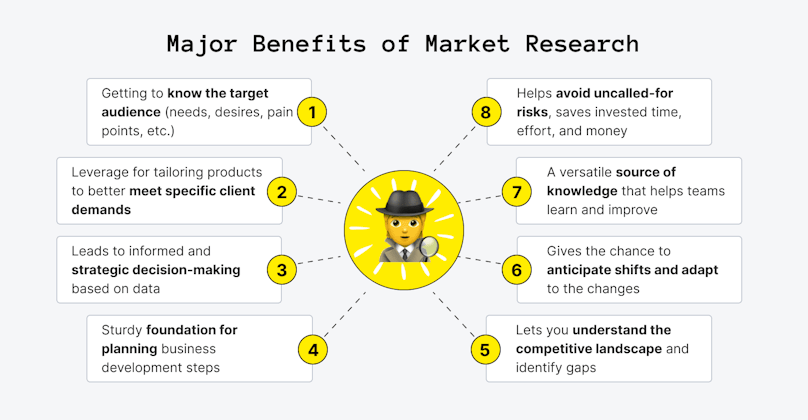
Top AI Market Research Tools
The landscape of AI market research tools is rich and varied, offering a range of solutions designed to cater to diverse business needs. In recent years, several tools have risen to prominence, each distinguished by its unique capabilities and advantages.
ChatGPT: An All-in-One Market Researcher
ChatGPT emerges as a game-changer in market research, thanks to its ChatGPT API and prompt engineering capabilities. This tool allows researchers to craft tailored prompts to delve into consumer insights, trends, and behaviours with precision. Through engaging, human-like interactions, ChatGPT can extract detailed qualitative data, offering businesses a deeper understanding of their audience. Its real-time response generation facilitates efficient and scalable market analysis, making ChatGPT an indispensable asset for innovative market research strategies.
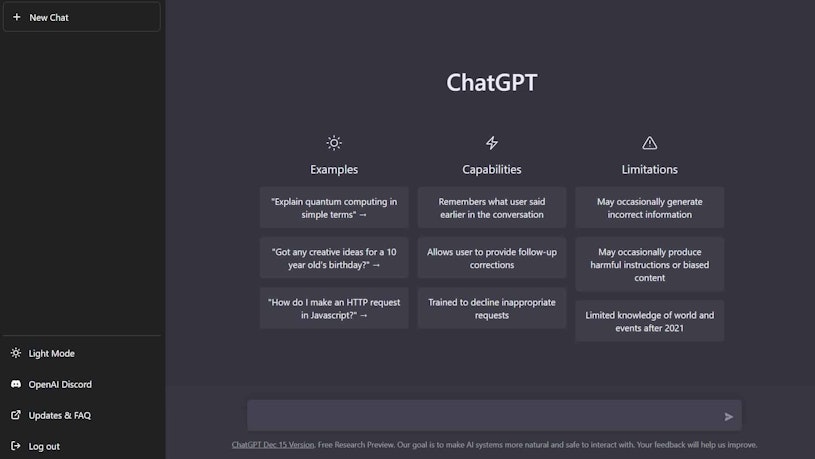
Quantilope: Comprehensive Insights Generation
Quantilope stands out for its end-to-end automated research platform, facilitating advanced analytics and agile market research processes. It's designed to streamline complex research tasks, offering tools for survey creation, data collection, and in-depth analysis. These insights help businesses understand consumer preferences and market trends, making it a go-to solution for companies looking to make data-backed decisions swiftly.
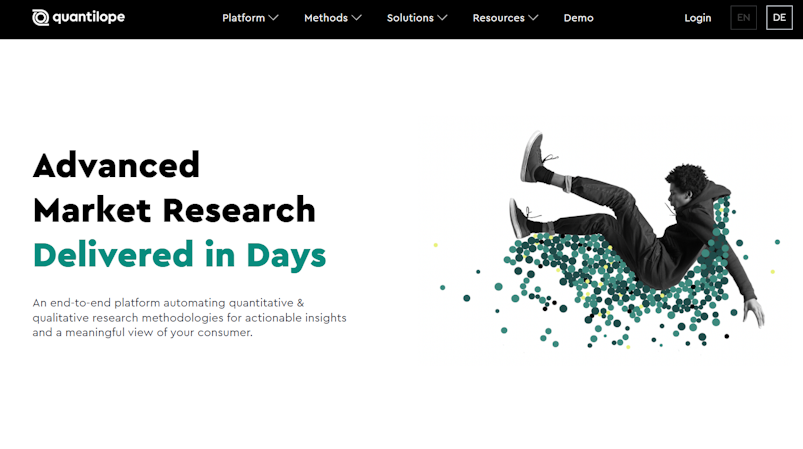
Crayon: Competitive Intelligence Mastery
Crayon excels in competitive intelligence by monitoring market activities across various digital landscapes. It uses AI to track competitors' online footprints, from website changes to social media activity, providing businesses with real-time alerts and insights. This enables companies to stay ahead in their marketing strategies and product development initiatives by understanding the competitive landscape in depth.
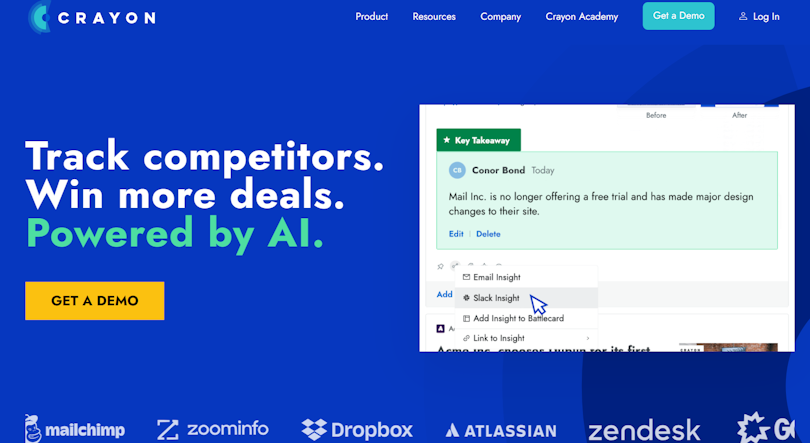
SEMRush Market Explorer: Strategic Market Analysis
SEMRush's Market Explorer is an integral part of the SEMRush offering comprehensive market analysis and competitor strategy insights. It allows businesses to identify growth opportunities and understand the demographic and psychographic profiles of their target audience. With its vast database, SEMRush is invaluable for businesses seeking detailed market trend analysis and competitor intelligence.

SurveySparrow: Engaging Survey Platform
SurveySparrow brings an engaging twist to traditional surveys by offering an AI-assisted platform that simplifies survey creation, distribution, and analysis. Its conversational interface enhances response rates, while real-time analytics provide immediate insights into market sentiments and customer preferences. This tool is ideal for businesses aiming to gather feedback efficiently and deepen their market understanding.
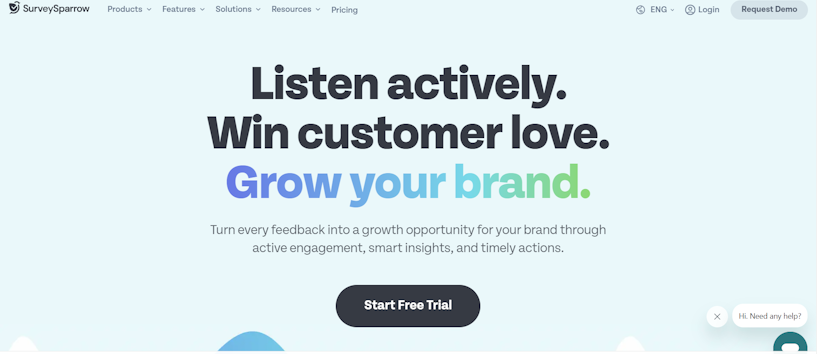
Speak: Audio and Video Insight Extraction
Speak specializes in transforming unstructured audio and video feedback into actionable insights through natural language processing. This tool is handy for analyzing consumer interviews, digital recordings, and social media content, offering businesses a unique perspective on consumer sentiments and behaviours.

Pecan: Predictive Analytics Simplified
Pecan leverages AI to turn data into predictive insights, such as customer retention rates and demand forecasts, without the need for complex data science expertise. It integrates with existing business tools to analyze data sets and deliver predictions, making it an essential tool for businesses focused on future-proofing their strategies.
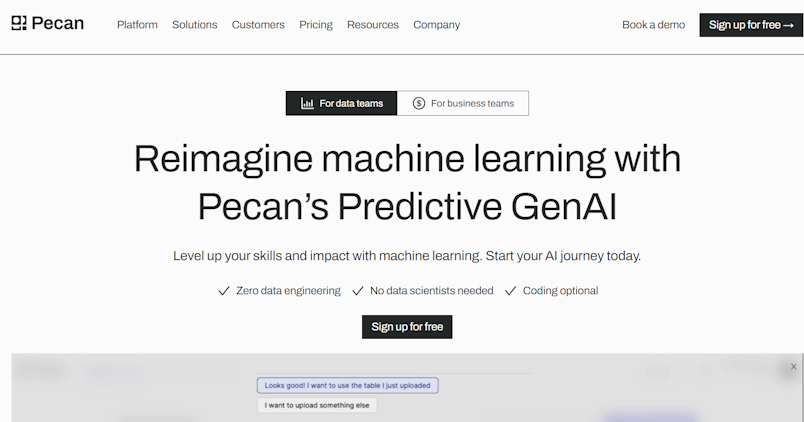
How to Choose the Right AI Market Research Tools
Choosing the right AI market research tool for your business involves carefully considering various factors to ensure the tool aligns with your business needs, size, and industry.
1. Understanding Your Business Needs
Assess your business objectives. Are you looking to understand consumer behaviour, track market trends, or monitor your competition? Different tools specialize in various aspects of market research, so identifying your primary goals is crucial.
2. Business Size and Scalability
For small businesses, affordability and ease of use might be the primary concerns. Look for tools that offer essential features without a steep learning curve. Medium to large enterprises might prioritize scalability and integration capabilities, ensuring the tool can grow with the business and seamlessly work with existing systems.
3. Industry-Specific Features
Certain industries might require specialized tools. For example, a business in the retail sector could benefit from a tool that offers detailed consumer sentiment analysis. At the same time, a tech company might need a tool that provides competitive intelligence with technological advancements.
4. Integration and Scalability
When searching for the ideal tool to meet your business needs, ensure it can integrate smoothly into your current tech stack while having enough scalability to accommodate expansion over time.
5. Cost/Value Analysis
Carefully consider how a tool's pricing translates to the value it brings for you and how it fits within your budget, taking into account efficiency gains, insights quality improvements, and actionable results as considerations for making a purchasing decision.
6. Support and Training
Evaluate the level of customer support and training that is offered, with proper resources for onboarding and troubleshooting the tool significantly increasing its value.
Ideal tools should provide a balance of functionality, ease of use and cost-effectiveness to help businesses unlock valuable market insights with precision and efficiency.
Evaluating the Effectiveness and ROI of AI Research Tools
Trial and Demo: Most AI market research tools offer free trials or demos. Utilize these to test the tool’s effectiveness in meeting your specific needs.
User Reviews and Case Studies: Look for reviews from businesses similar to yours. Case studies can provide insight into how the tool has been applied successfully in your industry.
Support and Training: Consider the level of customer support and training provided. A tool with accessible support and comprehensive training resources can significantly enhance its effectiveness.
Cost vs. Benefit Analysis: Evaluate the tool's cost against the potential benefits. Consider not just the subscription price but also the potential return on investment through improved market insights, increased efficiency, and better decision-making.
AI-Powered Market Segmentation: A New Era of Targeted Marketing
With the power of advanced algorithms and machine learning, AI now enables organizations to gain deeper insights into consumer preferences and demographics. This allows businesses to uncover niche market segments often missed by traditional methods, paving the way for more precise marketing strategies and higher customer satisfaction.
Key Benefits of AI-Powered Market Segmentation
Enhanced Customer Understanding: AI can analyze vast amounts of data from various sources, including social media, website analytics, and customer surveys, to gain a comprehensive understanding of customer preferences.
Precise Targeting: By identifying specific customer segments, businesses can tailor their marketing messages and product offerings to resonate with individual needs and preferences.
Improved Customer Acquisition and Retention: Targeted marketing campaigns driven by AI-powered segmentation can increase customer acquisition rates and improve customer retention.
Optimized Resource Allocation: Businesses can optimize resource allocation and maximize return on investment by focusing on high-value segments.
How AI-Powered Market Segmentation Works
Here is the step-by-step process involved in AI-powered customer segmentation.
Data Collection and Integration: AI tools gather data from various sources, including social media, website analytics, and customer surveys.
Data Analysis and Segmentation: AI algorithms analyze the collected data to identify patterns, trends, and customer segments based on factors such as demographics, behavior, and psychographics.
Customer Profiling: Detailed customer profiles are created, providing insights into individual preferences, needs, and pain points.
Targeted Marketing Campaigns: Personalized marketing campaigns are developed and executed to engage specific customer segments.
AI-powered market segmentation makes it possible for businesses to gain a competitive edge, increase sales, and build lasting customer relationships.
Ethical Considerations in AI Market Research
As AI continues to improve market research, it is essential to address the ethical implications of its use. While AI offers numerous benefits, we must use it responsibly and ethically.
Data Privacy and Security
Data Protection: AI-powered market research often involves collecting and analyzing large amounts of personal data. It is imperative to prioritize data privacy and implement robust security measures to protect sensitive information.
Informed Consent: Obtaining explicit consent from individuals before collecting and using their data is essential. Transparent data collection practices help build trust between businesses and consumers.
Bias and Fairness
Algorithmic Bias: AI algorithms can inadvertently perpetuate biases present in the data they are trained on. This can lead to biased insights and unfair treatment of certain groups.
Fairness and Inclusivity: It is crucial to ensure that AI-powered market research tools are designed and used in a way that promotes fairness and inclusivity.
Transparency and Accountability
Explainable AI: Transparency in AI algorithms is essential to understanding how decisions are made. Explaining the reasoning behind AI-driven insights can build trust with stakeholders.
Human Oversight: While AI can automate many tasks, human oversight is still necessary to ensure the ethical and responsible use of AI.
When businesses address these ethical considerations, they can harness the power of AI to gain valuable insights while upholding ethical standards and protecting user privacy.
How AI Market Research Affects Businesses
As AI continues to evolve, market research holds immense potential. Several tools are poised to shape the industry and offer even more valuable insights.
Real-time Insights: The Power of Instantaneous Data
AI-powered tools are capable of processing vast amounts of data in real-time, providing businesses with up-to-the-minute insights into market trends, consumer behavior, and competitor activity. This enables organizations to make informed decisions quickly and adapt to changing market dynamics.
Advanced Natural Language Processing: Unlocking the Power of Text
Advanced Natural Language Processing (NLP) techniques have changed the way businesses analyze text data. Since NLP algorithms can understand the nuances of human language, they can be used to extract valuable insights from social media conversations, customer reviews, and other textual sources. This enables businesses to gauge public sentiment, identify emerging trends, and uncover hidden opportunities.
We can expect even more sophisticated tools and techniques to emerge, further transforming the landscape of market research.
The Future of AI in Market Research
As we are at the threshold of a new age, the incorporation of Artificial Intelligence (AI) into market research is a revolutionary shift that could revolutionize how businesses perceive their customers and markets. Let's look at the major trends and developments making way for the exciting future.
Seamless Integration and Sophistication: AI technologies are being increasingly integrated into market research methods. Future tools will carry out complex analyses on their own which will significantly decrease the necessity for human intervention and simplify the research process.
Predictive Analytics and Consumer Information: The use of AI in predictive analytics will increase by providing companies with a better understanding of trends in the market and consumer habits. This will enable businesses to take proactive steps and stay ahead of the competition.
Advancements In Qualitative Research: As we improve the efficiency of Natural Language Processing (NLP) technology, AI's use for qualitative studies will grow and provide deeper insight into the motivations and feelings of consumers.
Ethical Data Collection and Analysis: When AI instruments for market research improve the focus is going to be put on ethical handling of data and making sure that the data is handled by ethics and privacy laws.
The future for AI for market research isn't just an indication of technological advancement but an evolution towards a more nimble flexible and ethical approach to uncovering the intricacies of consumer behavior and markets. As we explore this exciting future the potential for AI to alter market research landscapes is becoming more evident, signalling the beginning of a new era of business intelligence.
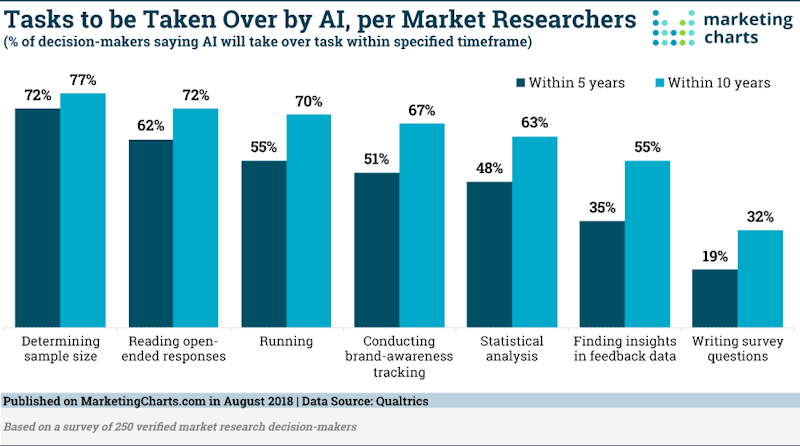
Conclusion
Embracing AI market research tools offers a transformative pathway for businesses seeking deep insights and a competitive edge. By leveraging AI's predictive analytics, automated data collection, and advanced sentiment analysis, companies can navigate the complexities of modern markets with precision. The journey into AI-driven market research is not just about adopting new technologies -it's about reshaping the future of business intelligence.




